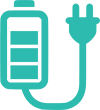- Products
Point Of Sale
Affordable and easy in store payments
Invoices
Get the invoices instantly
Payment
Make In payment online easily
Online Ordering
Get the online order easily
Scan to Pay
Customers pay bill using Scan To Pay
Scan to order
You can scan to order easily
Virtual Terminal
Made easy for Virtual Transaction
- Business Types
Fast Food
Designed to increase throughput in high volume environments
Full Service
Deliver superb guest experiences with our platform
Retail Businesses
Inventory management done right
Services Businesses
Your ‘Convenience’ business is finally convenient
eCommerce
Self-Serve eCommerce
- Hardware
Clover Station Duo
New! fast and powerful POS system
Station Solo
New! Robust POS for payments and business management
Flex
Payments beyond the counter
Accessories
Run your business from your laptop, phone, or tablet.
- Company
About Us
The Paycue story
Contact Us
We would love to hear from you
Testimonial
See what our customers are saying
Blog
See what our customers are saying
Career
Join the Modisoft family





















